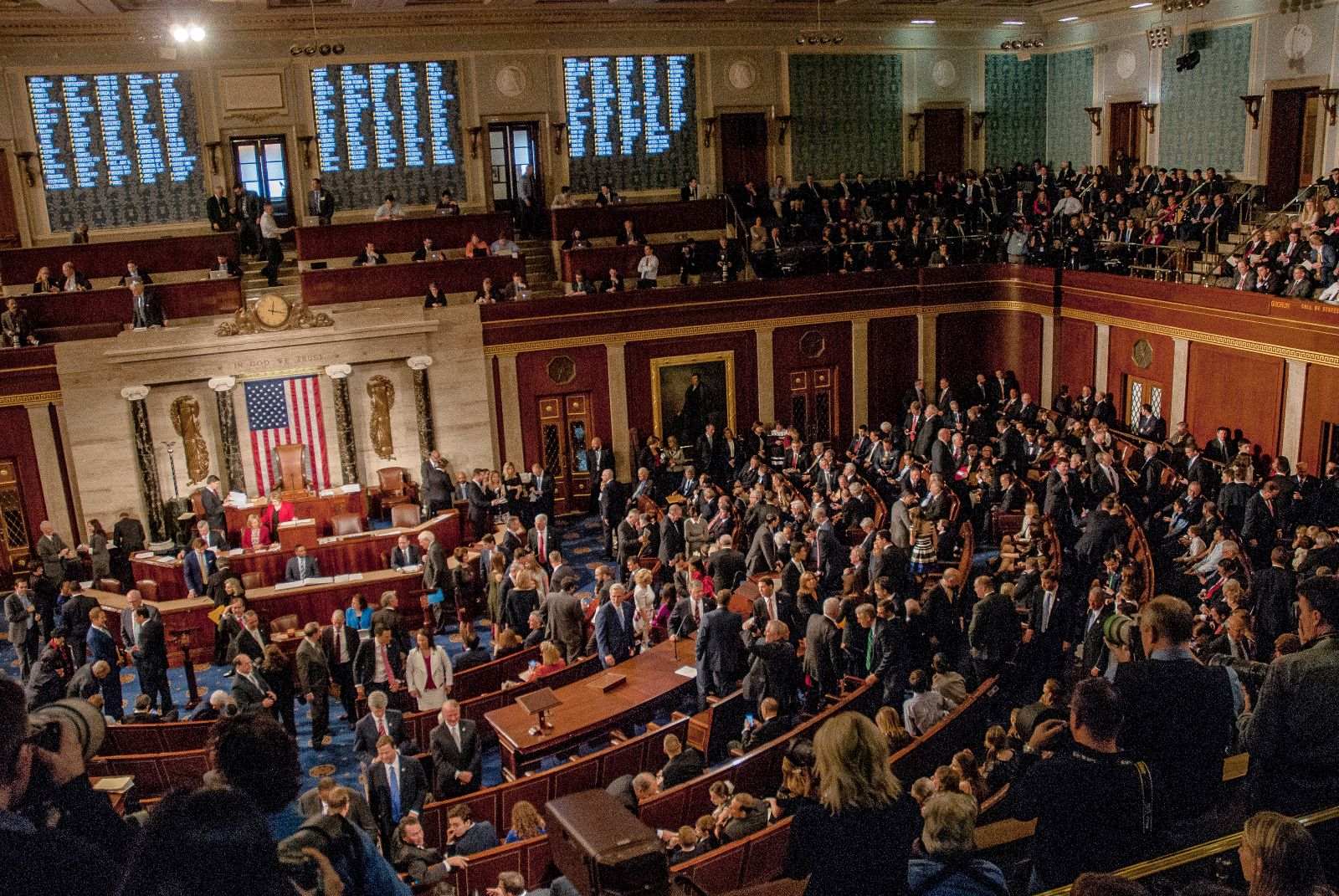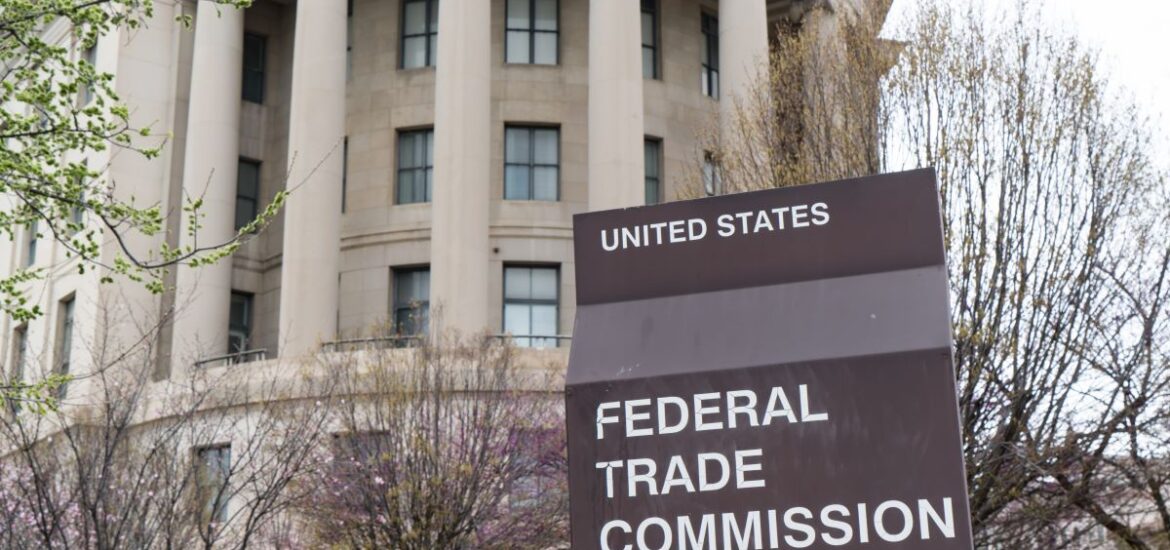The Federal Trade Commission has moved to block noncompete contracts, and a lot of organizations are not happy with the decision.
The End of Noncompete Clauses?

In another bold step by the US Federal Trade Commission, Americans may see the end of noncompete clauses in the workplace, if their new rule can make its way through federal courts.
No Competitive Businesses or Employers

A noncompete clause in an employment contract stipulates that employees cannot engage in competitive practices after that contract is up, whether by starting a competing business or working for a competitor.
More Freedom for Employees

On Tuesday the FTC issued a rule to rid workplaces nationwide of noncompete clauses, allowing workers to pursue employment with any company they prefer.
20% of Americans Affected

Noncompete clauses run rife across many industries in the US, so if the rule is successfully passed into law it would affect millions. According to the FTC, close to 20% of Americans are currently working under a noncompete clause.
As Many as 30 Million Helped

The FTC believes that an end to these prohibitive clauses would help as many as 30 million Americans earn more in their careers.
Biden’s Executive Order

It is not the first step recently taken to challenge such contracts. Three years earlier President Biden also signed an executive order to limit these agreements at a federal level.
State Decision-Making

At a state level, some action has already been taken to limit these contracts. California has already placed restrictions on FTC agreements, and other states have made similar moves to a lesser extent.
First Proposed in 2023

A ban was first proposed by the FTC in January 2023, where it was argued that non-compete clauses harmed the average worker by making it more difficult to move on to higher-paying jobs in their industry.
A Shift in the Industry

While noncompete contracts have long been associated with higher-paying jobs and even executive positions in the tech and finance industry, this phenomenon has shifted in recent decades, with low-income workers increasingly compelled to sign these contracts.
Low-Income Workers

According to a 2021 study by the Federal Reserve Bank of Minneapolis, 10% of workers who sign noncompete contracts are earning just $20 an hour or less.
Stifling Innovation

The FTC also argued that these clauses go far in stifling industry innovation and entrepreneurship due to reducing the amount of competing businesses that can be established.
A Boon For Start-Ups

“Noncompete clauses keep wages low, suppress new ideas and rob the American economy of dynamism, including from the more than 8,500 new startups that would be created a year once noncompetes are banned,” said FTC Chair Lina Khan.
More Space for Growth

“The FTC’s final rule to ban noncompetes will ensure Americans have the freedom to pursue a new job, start a new business or bring a new idea to market,” she continued.
Legal Action Taken

But whether the noncompete clause ban will be passed into law is another question. Delays to its enforcement are certain, as legal action has already been taken since the FTC’s announcement.
Lawsuits Flood In

Within 24 hours of the FTC ruling, various groups have filed lawsuits in order to block the ruling. The first lawsuit was filed on Wednesday by the Chamber of Commerce, Business Roundtable, Texas Association of Business, and the Longview Chamber of Commerce.
More to Come

Legal experts, such as DLA Piper employment lawyer Daniel Turinsky, expect more filings to appear in the coming weeks. “We think it’s likely additional lawsuits could be filed,” he said.
A Preliminary Injunction

Before the rule was issued the Chamber of Commerce had already made it clear that they did not support the FTC and would take action to prevent the ruling. They have asked the federal courts to place a preliminary injunction that would delay enforcement of the law throughout the litigation process.
No Legal Grounds?

In their filing, the Chamber posited that the FTC did not have the legal grounds to impose a blanket ban on nationwide noncomplete contracts. “The FTC contends that by using regulation they can simply declare common business practices to be ‘unfair methods of competition’ and thus illegal,” the filing read.
“Without a Vote from Congress”

“This is despite the fact that noncompete agreements have been around longer than the 110-year-old FTC and until now no one has suggested that they are illegal,” it continued. “If the FTC can regulate noncompete agreements, then they can decide to regulate or even ban any other business practice. All without a vote from Congress.”
“Clear Legal Authority”

Lina Khan responded to the filling in an appearance on CCN, claiming that the agency has “clear legal authority” to issue a noncomplete clause ban.
21 States Where Squatters Can Legally Claim Your Property

Discover how squatters’ rights, or adverse possession, are more than just legal jargon—they’re stories of unexpected twists in the world of real estate. From sunny California to the historical landscapes of Pennsylvania, here’s how these laws could turn the tables on homeowners and squatters alike. 21 States Where Squatters Can Legally Claim Your Property
14 Things That Are Banned in the U.S. but Totally Fine Elsewhere

Ever feel like America’s rulebook was written by someone with a dartboard? Across the pond or down under, things get even wackier. Let’s take a walk on the wild side of global “Do’s” that are definite “Don’ts” in the Land of the Free. 14 Things That Are Banned in the U.S. but Totally Fine Elsewhere
25 American States Nobody Wants to Visit Anymore

Across the United States, some states capture the hearts and itineraries of many, while others remain quietly on the sidelines, overshadowed or misunderstood. These 25 states, facing what you might call a popularity crisis, are brimming with hidden wonders, cultural riches, and natural beauty, awaiting those willing to look beyond the usual tourist trails. 25 American States Nobody Wants to Visit Anymore
20 Foods That Are Cheaper to Eat Out Than Making at Home

In a world where convenience often wins, certain culinary delights come with a lower price tag when enjoyed at a restaurant rather than crafted in your own kitchen. Here are twenty foods that might save you both time and money when indulged in at your favorite eatery. 20 Foods That Are Cheaper to Eat out Than Making at Home
17 Things You’re Paying For, but You Don’t Have To

In the land of the free, there’s a price tag on everything, but savvy Americans know better than to open their wallets for just anything. Here are 17 expenses you’ve been shelling out for without realizing there’s a cheaper or even free alternative. 17 Things You’re Paying For, but You Don’t Have To
The post US Employment Shift: Eliminating Workplace Noncompetes first appeared on From Frugal to Free.
Featured Image Credit: Shutterstock / Paul Brady Photography.
The content of this article is for informational purposes only and does not constitute or replace professional financial advice.
